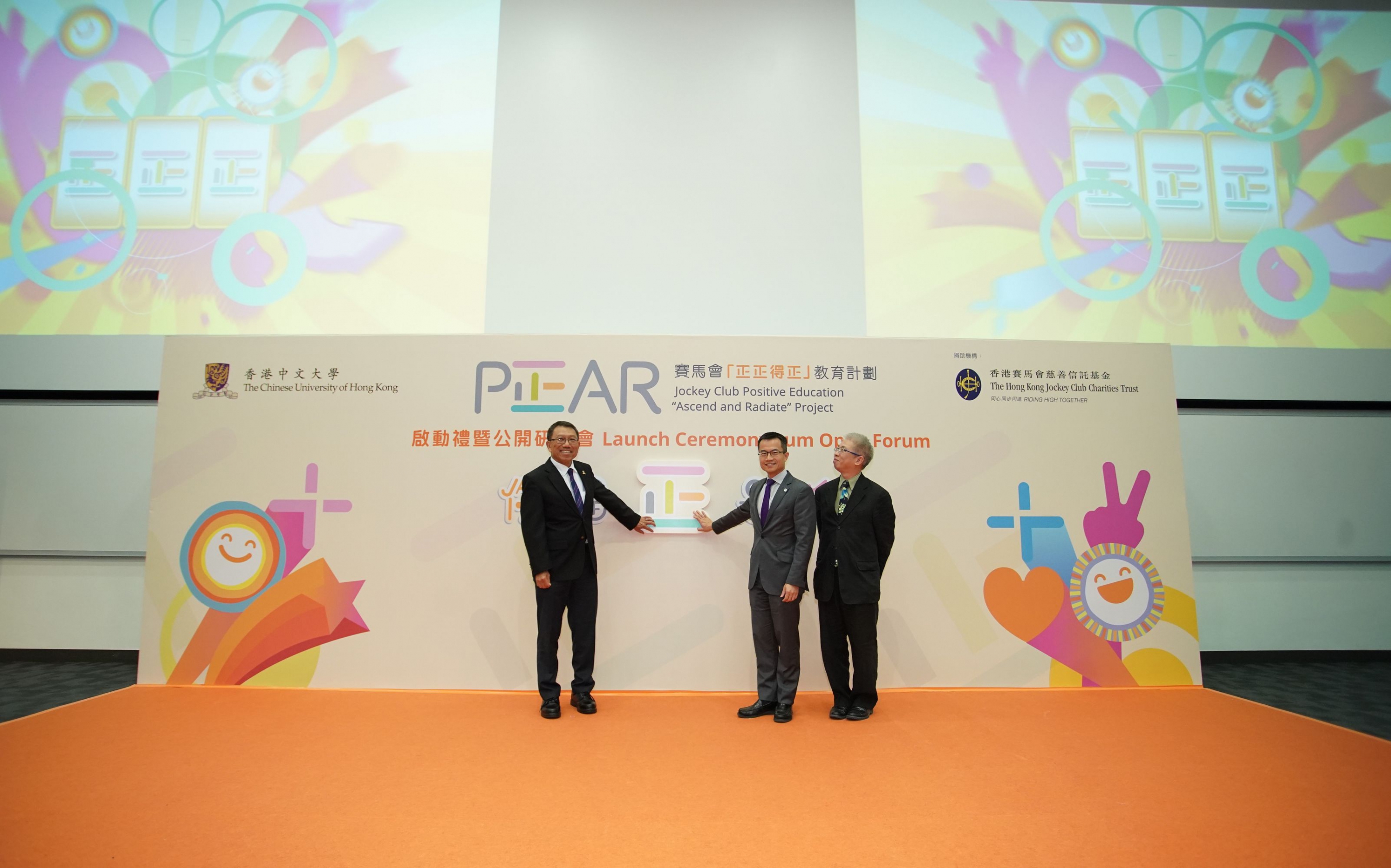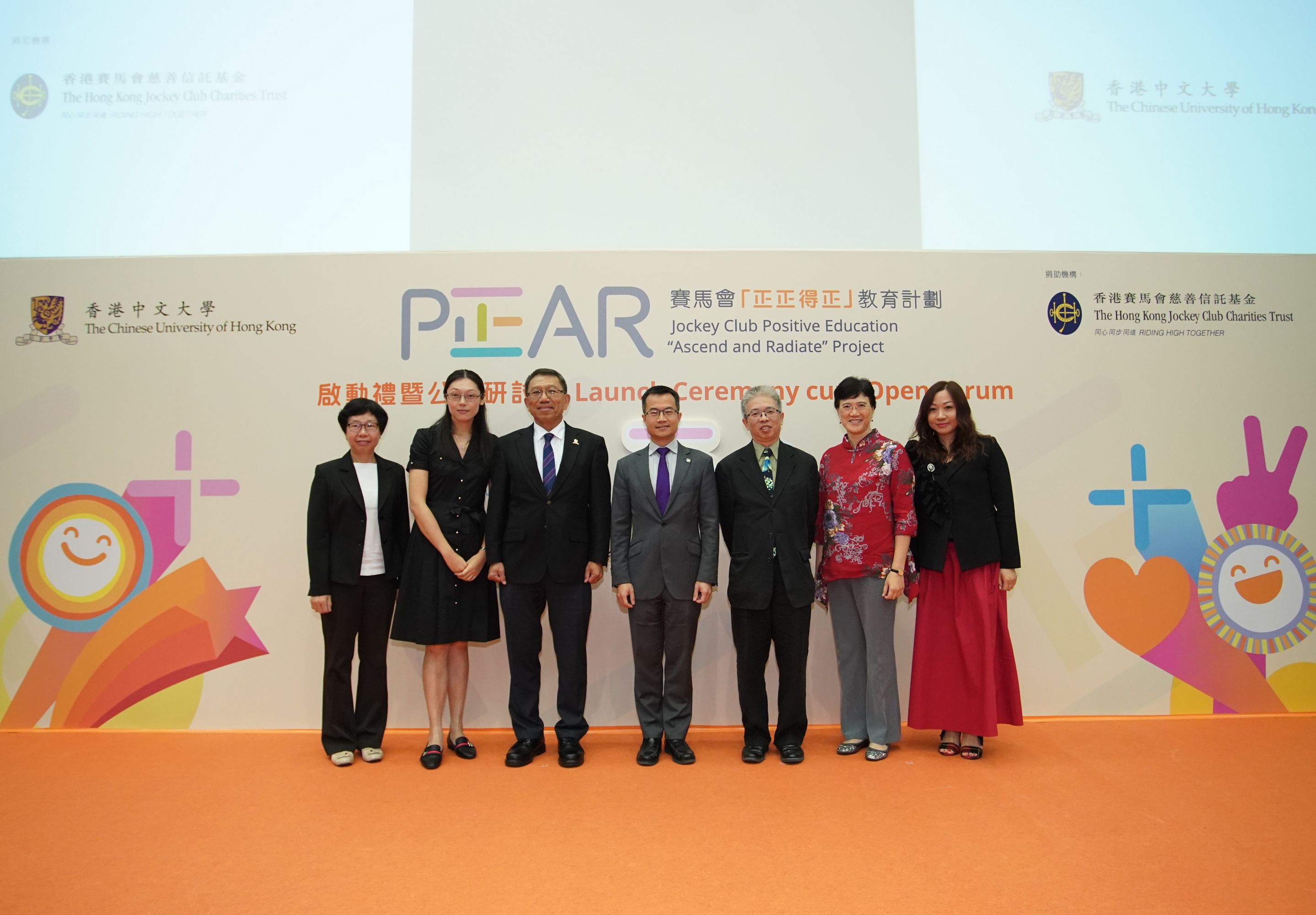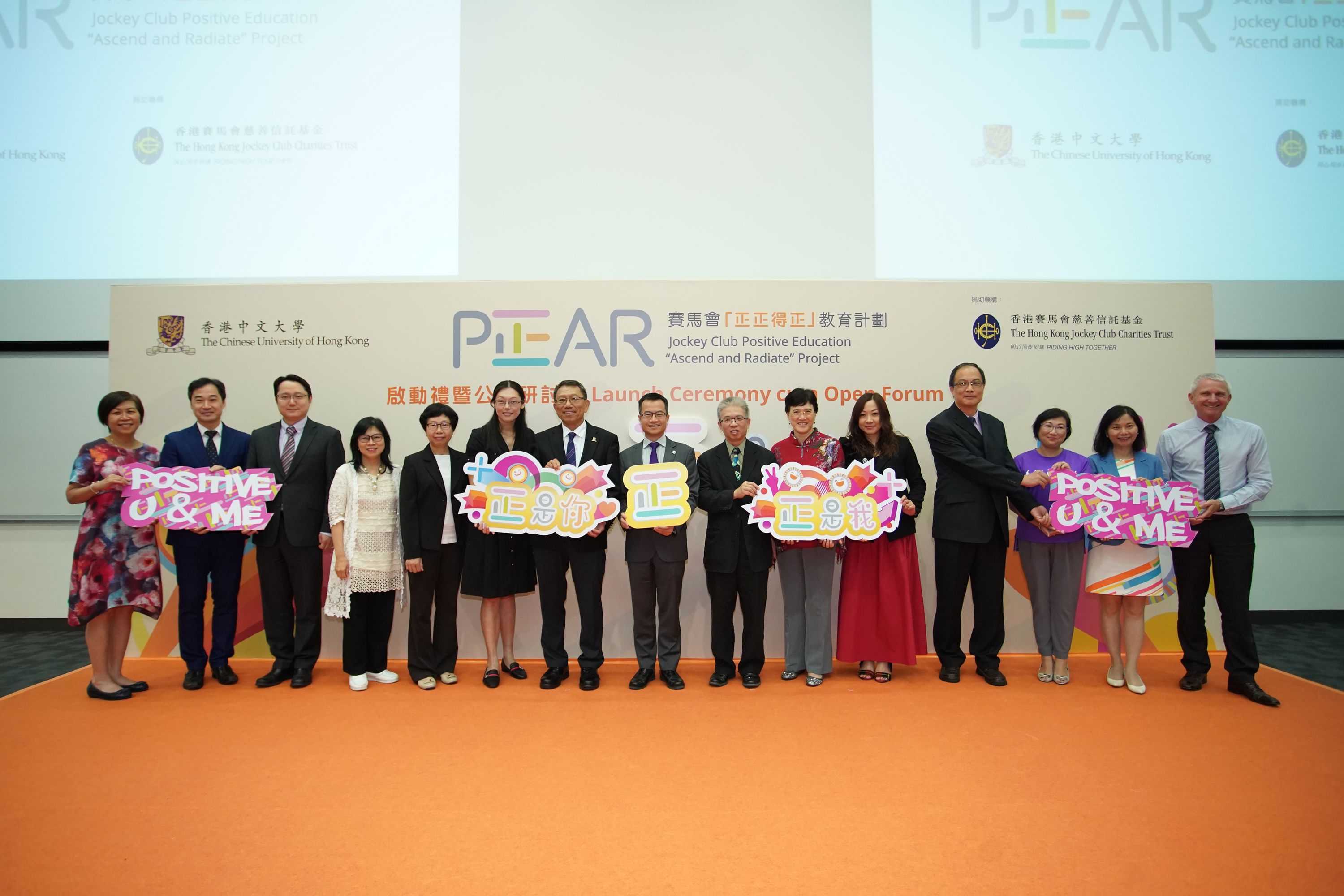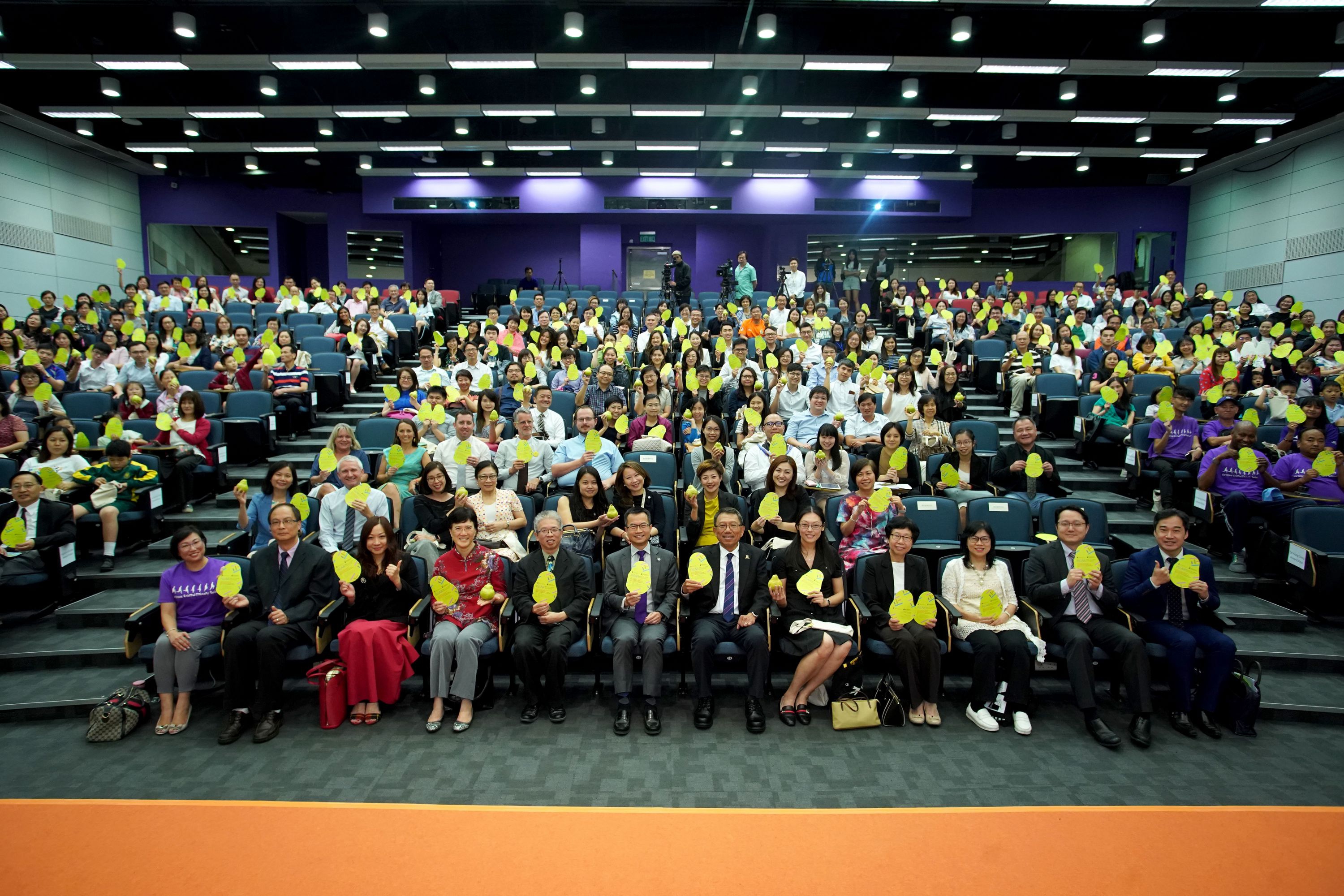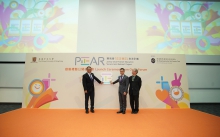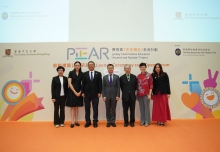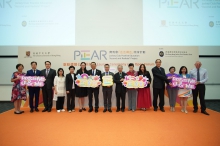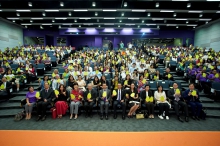CUHK
News Centre
CUHK Faculty of Social Science and HKJC Drive the JC-PEAR ProjectTo Establish a New Education Paradigm that Promotes Intellectual Growth and Psychological Well-being
According to a recent research, one in every three Hong Kong people thinks his or her life is meaningless and that proportion is the highest in the world. When a person thinks it is meaningless to live in the world, they will have thoughts about committing suicide even if they are young and potentially energetic. In recent years, the number of students having emotional problems has been increasing and more and more young students are suffering from mental illnesses. Often news of students committing suicide can be found in the media and the situation gives rise to great concern among the public.
In view of the current situation, The Hong Kong Jockey Club Charities Trust and the Faculty of Social Science of The Chinese University of Hong Kong (CUHK) are co-creating the Jockey Club Positive Education “Ascend and Radiate” Project (JC-PEAR). It aims to exploit advanced knowledge and practices in positive education among students, parents and teachers through co-creation and co-development of current expertise and skills. The Launch Ceremony and Open Forum of the JC-PEAR was held today in CUHK. Professor Rocky S. Tuan, Vice-Chancellor and President of CUHK, Mr. Leong Cheung, Executive Director, Charities and Community of The Hong Kong Jockey Club and Professor Chi-yue Chiu, Dean of Social Science of CUHK officiated the launch ceremony.
Professor Tuan, Vice-Chancellor and President of CUHK in his welcome address said, “In the face of challenges arising from this complex society of ours, it is essential for our younger generation to enhance their problem-solving skills and resilience, as well as nurture a positive outlook on life. The JC-PEAR Project is firmly grounded in positive education research. Through applying positive education research to practices, the Project will drive the development and application of positive education, and establish a positive learning environment that benefits more teachers and students.”
Mr. Leong Cheung, Executive Director, Charities and Community of The Hong Kong Jockey Club said, “The Club is committed to the development of the younger generation by providing them with more opportunities. The JC-PEAR Project is aimed at creating a good school environment for better student learning and growth. It combines positive psychology and best teaching practices to help schools redesign their pedagogy, learning activities, assessments and school campus to cultivate a positive atmosphere. Relevant training is being provided to teachers to enhance their positive interaction with students. Sharing and learning platforms will also be regularly organised to encourage more schools to apply positive education.”
Professor Chi-yue Chiu, Dean of Faculty of Social Science of CUHK said, “The goal of this Project is straightforward. We strive to change the learning context that promotes learning at the expense of well-being to one that creates well-being through learning.”
Primary and secondary schools participating in the JC-PEAR Project get professional consultations from the CUHK JC-PEAR Project Team on adjusting different aspects, from teaching syllabus and methods to communications with the students. Great improvement has been found among the students in their learning motivation, behaviour and the expression of their emotions after the adjustments. The CUHK JC-PEAR Project team also found that if students are willing to try different learning strategies, equip themselves with the can-learn and can-do attitude, then they are more capable of coping with setbacks, can maintain an optimistic outlook and deliver a better performance. Professor Chi-yue Chiu also shared his views on positive psychology and how to help the kids build positive thinking with parents attending school seminars organised by CUHK.
Principal Ha of Po Leung Kuk Ma Kam Ming College said, “Through the JC-PEAR Project, we use long-distance running to train students to set goals and develop the ability to transcend themselves, taking them from not knowing how to run, to learning how to run, to, eventually, how to run by different methods and with different goals. We hope to equip them with a proactive attitude and apply it to their daily lives.”
(from left) Professor Rocky S. Tuan, Vice-Chancellor and President of CUHK, Mr. Leong Cheung, Executive Director, Charities and Community of The Hong Kong Jockey Club and Professor Chi-yue Chiu, Dean of Social Science of CUHK officiated the launch ceremony of JC-PEAR Project
Professor Rocky S. Tuan (3rd left), Mr. Leong Cheung (4th right), Professor Chi-yue Chiu (3rd right) have a group photo with members of the JC-PEAR Project Management Committee including Ms. Carol Kwong (1st left), Dr. Carmen Yau (2nd left), Professor Shui Fong Lam (2nd right) and Ms. Bik-kwan Ip (1st right)
Professor Rocky S. Tuan, Mr. Leong Cheung, Professor Chi-yue Chiu, with members of the JC-PEAR Project Management Committee and representatives from the resource and partner schools


